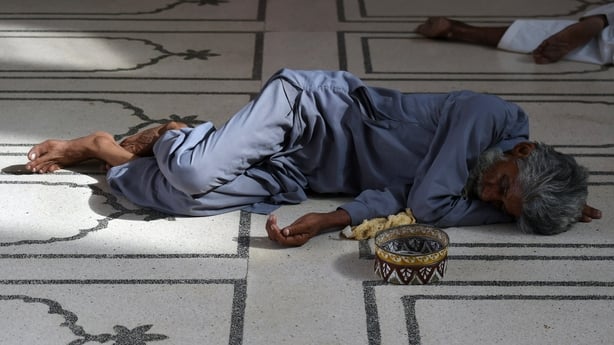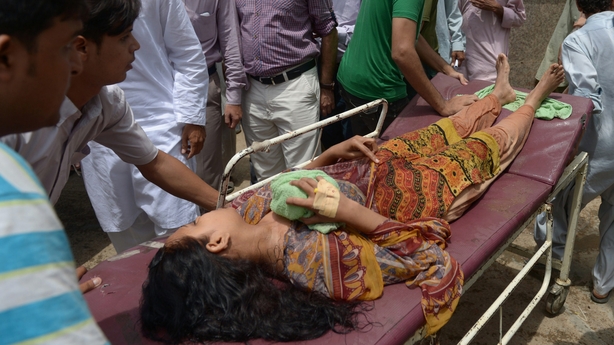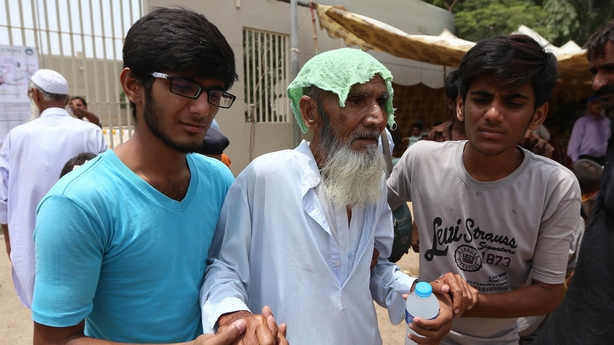The death toll from a major heatwave in Pakistan has passed 1,000, according to medics and welfare workers.
Days of unusually hot weather in Karachi, the country's biggest city, have seen tens of thousands of people struck down with heatstroke and dehydration.
Further fatalities are expected.
Morgues are said to be running out of space as the death toll rises from the worst heatwave to hit Karachi in nearly 35 years.
Tents offering iced water and rehydration salts have sprung up on street corners, run by rival political parties and the military.
The heatwave in the city of 20 million people coincided with severe electricity cuts, leaving many without fans, water or light.
It is also the beginning of the holy month of Ramadan, when many Muslims do not eat or drink during daylight hours.
 Some shops have refused to sell ice or water during the day, citing religious laws that mean they can be fined.
Some shops have refused to sell ice or water during the day, citing religious laws that mean they can be fined.
It is also illegal to eat or drink in public from dawn to dusk.
Temperatures shot up to 44C at the weekend, the hottest since 1981, although they dipped to 38C today.
Forecasters have been predicting rain for days, but there has been no significant fall.
An influx of dead means body bags have stacked up on the floor of the morgues, said Anwar Kazmi, a senior official of the charitable organisation the Edhi Foundation.
"The refrigeration unit was not working properly because there were too many bodies," he said.
Mr Kazmi said more than 1,000 people had died of heat-related causes so far.

 The provincial government had done little except try to blame others, he said.
The provincial government had done little except try to blame others, he said.
"We pay tributes to the doctors and staff of the government hospitals who are working tirelessly treating an endless number of patients," he said.
Hospitals called in student doctors to work extra shifts and appealed for basic items like sheets and stretchers.
Decades of chronic neglect by successive civilian governments or military regimes have gutted social services like health and education.
Many public hospitals said citizens dropped off carloads of iced water and other supplies.
The number of patients was slowly declining as the temperature goes down, doctors said.

